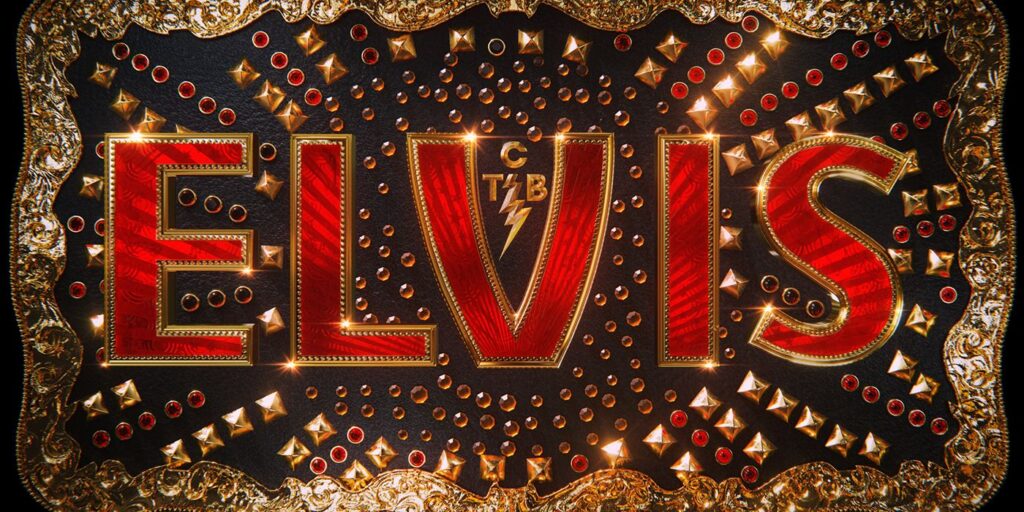The New Elvis Film Grosses $281 Million Worldwide
Baz Luhrmann directed a biopic musical on the “King of Rock & Roll” himself, Elvis Presley. Before the movie’s release, Austin Butler, the actor who played Elvis, got a lot of criticism for not being able to lose the accent he took up for the film, but on June 24th, when the movie was released, many people’s minds changed.
The movie was co-written by Sam Bromell, Craig Pearce, and Jeremy Doner, and Mandy Walker was the excellent cinematographer on the film. The film was a hit and made over 270 million dollars at the box office globally, making it the second highest-grossing movie in its genre.
The story starts with the death of Presley’s former manager, Colonel Tom Parker, who was played by Tom Hanks, and as an IV drip turns into a Las Vegas casino, it continues with how the Colonel met the future King of Rock.
From then on, the movie starts in a rush at a fast-paced speed. It quickly depicts a young Elvis who spent his childhood in Mississippi, raised by his doting mother. He escapes from reality through Captain Marvel cartoons and is fascinated by African-American music. The movie later progresses to young Elvis’s first breakthrough into the mainstream, with his single “That’s All Right,”immediately catching the eye of Tom Parker.
During Elvis’ first performance at the Louisiana Hayride, where Parker first officially sees him, Parker realizes that Presley is a talented musician, and the crowd goes wild. As Presley and Parker join forces and Parker persuades Elvis to let him take control of his career, the young star’s career sky-rockets to rapid fame.
The beginning of Elvis’ career flashes by audiences in glitzy jumpsuits and fanatic audiences. Although the public’s opinion of the musician is quite polarizing. The singer’s work, inspired by the music he grew up around, and his charged dance movies led him into hot water and legal
troubles. To avoid legal entanglement, Parker persuades the government to draft Elvis into the Army until his mother’s death, which devastates Elvis. After he is discharged, he resumes his career and marries Priscilla Beaulieu.
The maximalist director, Luhrmann, fills the screen with shots from actual Elvis performances alongside the movie’s depictions. During some of the shots, Austin Butler does such an excellent job as Elvis that, at first glance, you couldn’t tell which performance was real and which wasn’t.
Something could be said about how the movie’s pace is affected by Presley’s career, but two and a half hours is a long time for any movie, and suddenly as Presley’s career starts to grow stagnant, so does the movie’s pace.
Presley starts to chafe at the restraints of the crooked Colonel Parker, and against the Colonel’s wishes, he revamps his image during what was supposed to be a Christmas special. However, Elvis, who wants to go on a world tour, soon realizes that Parker cannot travel abroad due to
being a stateless illegal immigrant and was tricked into signing a contract for a long-term Las Vegas casino residency.
It leads to an argument that ends in the two not seeing each other, even though Parker still works and has his manager in the background. After that, the film moves at its slowest pace as Elvis is overtaken by his prescription drug addiction, exhaustion from a rigorous concert tour, and Priscilla divorces him, taking their daughter with her.
The film ends with his final performance as a bloated, sweaty, pale Elvis performing “Unchained Melody,” and Parker’s recollection and life end.
The movie’s biggest flaw was its perspective. Being told from the point of view of Colonel Tom Parker led it to sidestep the complicated man himself and his complicated legacy. It leads you to believe that Elvis is a victim of corruption and capitalism. Shouldn’t Elvis Presley seem like an intricate human being with layers of complexity in his own film? When told from Parker’s perspective, the answer seems to be no.
The film also neglects a lot of the problematic issues surrounding Elvis. Some include the age gap between Presley and his ex-wife, Priscilla, who was 14 years old when she met Presley, and his relationship with Nixon, in which they worked together to fight the war on illegal drugs, despite being a drug abuser himself. It also ignores the importance of the Black artists who inspired Elivs, supported him, and were just as important to musical history.
Even with the movie’s flaws, there is nothing bad to say about Butler’s portrayal. His fervor and energetically captivating performances were without a hint of imitation. No one could have played Elvis better in a biopic, and his depiction of the King of Rock and Roll can be considered award-winning.
You may be interested

Another Spectacular Night at the Met Gala
Gabriella Garcia - May 14, 2025The Met Gala is one, if not, fashion’s biggest night. It takes place on the first Monday of May every year, and audiences…

Embracing the Joy of Mother’s Day
Emi Martin - May 12, 2025Mother’s Day landed on the 11th of May this year, and celebration was in order. On Sunday, people made sure whoever they loved…

Unforgettable Evening at Ferguson’s Dance Show
Kristen Almendral - May 07, 2025"Ferguson's Dance Playlist" was a production that was one to remember. It reflected the dancers' talent and the union between the collaboration of…
Most from this category

Electrifying Adventure of the Latest Marvel Experience: Thunderbolts
Arianna Giraldo - May 06, 2025



















